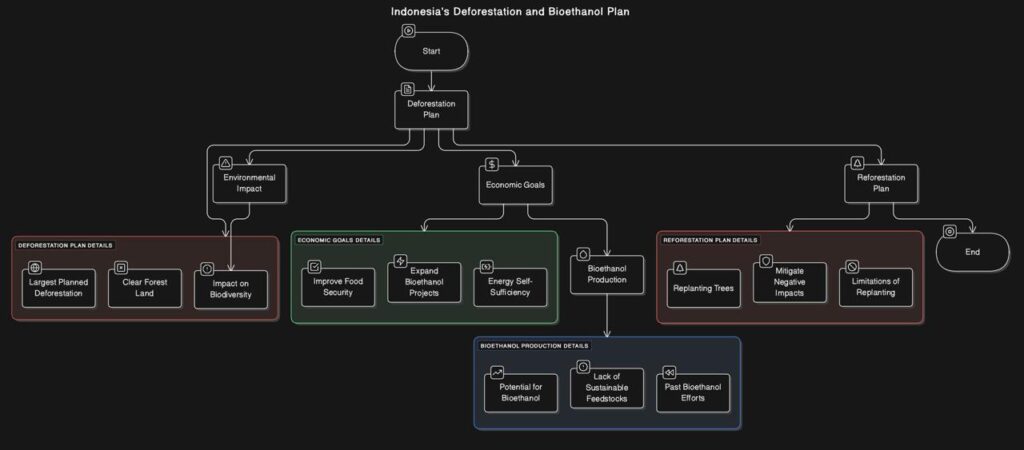Indonesia, home to one of the world’s most expansive tropical rainforests, is embarking on a controversial path that could see the clearance of forests the size of Belgium. This government-backed initiative is aimed at enhancing food self-sufficiency and boosting biofuel production. However, the move has sparked concerns among environmental watchdogs, tribal communities, and international agencies.

The ambitious project, known as the Merauke Integrated Food and Energy Estate (MIFEE), plans to convert vast swathes of forested land, primarily in Papua, into agricultural estates for crops like sugarcane and cassava. The goal is to reduce dependence on food imports and fossil fuels by cultivating biofuel-producing plants and food crops. The current president, Joko Widodo, has reinvigorated this initiative, originally proposed under former President Yudhoyono, with the aim of achieving self-reliance in food and energy over the next two decades.
Supporters of the project argue that it is essential for national food security and aligns with global efforts to shift toward renewable sources of energy. Biofuels, including ethanol, are touted as low-carbon alternatives that reduce fossil fuel dependence in sectors such as transport and aviation.

Despite these intentions, the environmental cost is profound. The deforestation threatens biodiversity in one of the richest ecological regions on Earth, home to orangutans, elephants, and indigenous Papuan communities. Experts warn that displacing these communities and destroying habitats will have irreversible effects. According to the environmental organization Mighty Earth, the Merauke estate alone spans 3.4 million hectares and may lead to one of the largest deforestation events in modern history.
Indonesia has already witnessed the degradation of over 74 million hectares of forest in the name of development. Fires and illegal logging have exacerbated this damage, often paving the way for palm oil, paper, and mining operations. The proposed deforestation could further threaten sustainable development efforts and worsen climate change impacts.

In conclusion, while Indonesia’s drive toward food and energy independence is understandable, the trade-off between ecology and economic development needs to be critically assessed. A sustainable approach must balance the country’s needs without sacrificing its ecological wealth or displacing vulnerable communities. The world watches as Indonesia chooses its path forward — one that could serve as either a cautionary tale or a model for integrating development with environmental stewardship.

0 Comments